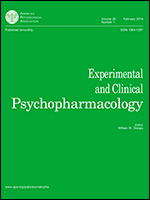 “Much of the initial reports for cannabis use in seizure control centered on the compound 9-Δ-tetrahydrocannabinol (THC). However, due to the psychoactive properties of THC potential utility was somewhat limited and recent research has focused on non-psychoactive compounds such as cannabidiol (CBD).
“Much of the initial reports for cannabis use in seizure control centered on the compound 9-Δ-tetrahydrocannabinol (THC). However, due to the psychoactive properties of THC potential utility was somewhat limited and recent research has focused on non-psychoactive compounds such as cannabidiol (CBD).
The anti-seizure effects of CBD may come from mechanisms such as functional agonism or antagonism at several 7-transmembrane receptors, ion channels, and neurotransmitter transporters.
Recently, another compound that also is without psychoactive effects known as CBDV has also shown anti-seizure properties both in vivo and in vitro.
Many reports exist on illicit cannabis use through the smoking of marijuana by patients as a self-treatment.
Cannabis and cannabis-based treatments offer promising alternatives to traditional antiepileptic drugs (AEDs).
Due to the unfortunate fact that many patients suffer from Drug-resistant epilepsy (DRE), cannabis-based treatments have great value.
Cannabis-based treatments offer some patients with DRE a great remedy for their condition with limited side effects.
This option may prevent some patients with DRE from needing to consider more invasive options such as surgical interventions. In case studies, open label studies, and RCTs, one can see drastic improvements in the frequency of seizures in patients with certain forms of epilepsy.
It is imperative to continue research into cannabis as a potential primary treatment for epilepsy, particularly those with DRE, to help improve quality of life for millions of people suffering from epilepsy.”
https://www.ncbi.nlm.nih.gov/pubmed/31463193
https://www.sciencedirect.com/science/article/pii/S221342201930157X?via%3Dihub

 “The neurodegeneration, neuro-inflammation and mitochondrial dysfunction which occur by methamphetamine (METH) abuse or administration are serious and motivation therapeutic approaches for inhibition of these types of neurodegeneration. As we know, METH through Toll-like receptors (TLRs), specially type 4, and NF-κB signaling pathway causes neuro-inflammation and mitochondrial dysfunction.
“The neurodegeneration, neuro-inflammation and mitochondrial dysfunction which occur by methamphetamine (METH) abuse or administration are serious and motivation therapeutic approaches for inhibition of these types of neurodegeneration. As we know, METH through Toll-like receptors (TLRs), specially type 4, and NF-κB signaling pathway causes neuro-inflammation and mitochondrial dysfunction.
 “Both types of
“Both types of  “Medical and recreational cannabis use is increasing significantly, but its impacts on oral health remains unclear.
“Medical and recreational cannabis use is increasing significantly, but its impacts on oral health remains unclear. “The biological effects of endocannabinoid system are mediated by two types of receptors,
“The biological effects of endocannabinoid system are mediated by two types of receptors,  “Despite the growing knowledge on the functional relationship between an altered endocannabinoid (eCB) system and development of anorexia nervosa (AN), to date no studies have investigated the central eCB tone in the activity-based anorexia (ABA) model that reproduces key aspects of human AN.
“Despite the growing knowledge on the functional relationship between an altered endocannabinoid (eCB) system and development of anorexia nervosa (AN), to date no studies have investigated the central eCB tone in the activity-based anorexia (ABA) model that reproduces key aspects of human AN. “Post-traumatic stress disorder (PTSD) is a common psychiatric disorder resulting from a traumatic event, is manifested through hyperarousal, anxiety, depressive symptoms, and sleep disturbances.
“Post-traumatic stress disorder (PTSD) is a common psychiatric disorder resulting from a traumatic event, is manifested through hyperarousal, anxiety, depressive symptoms, and sleep disturbances.